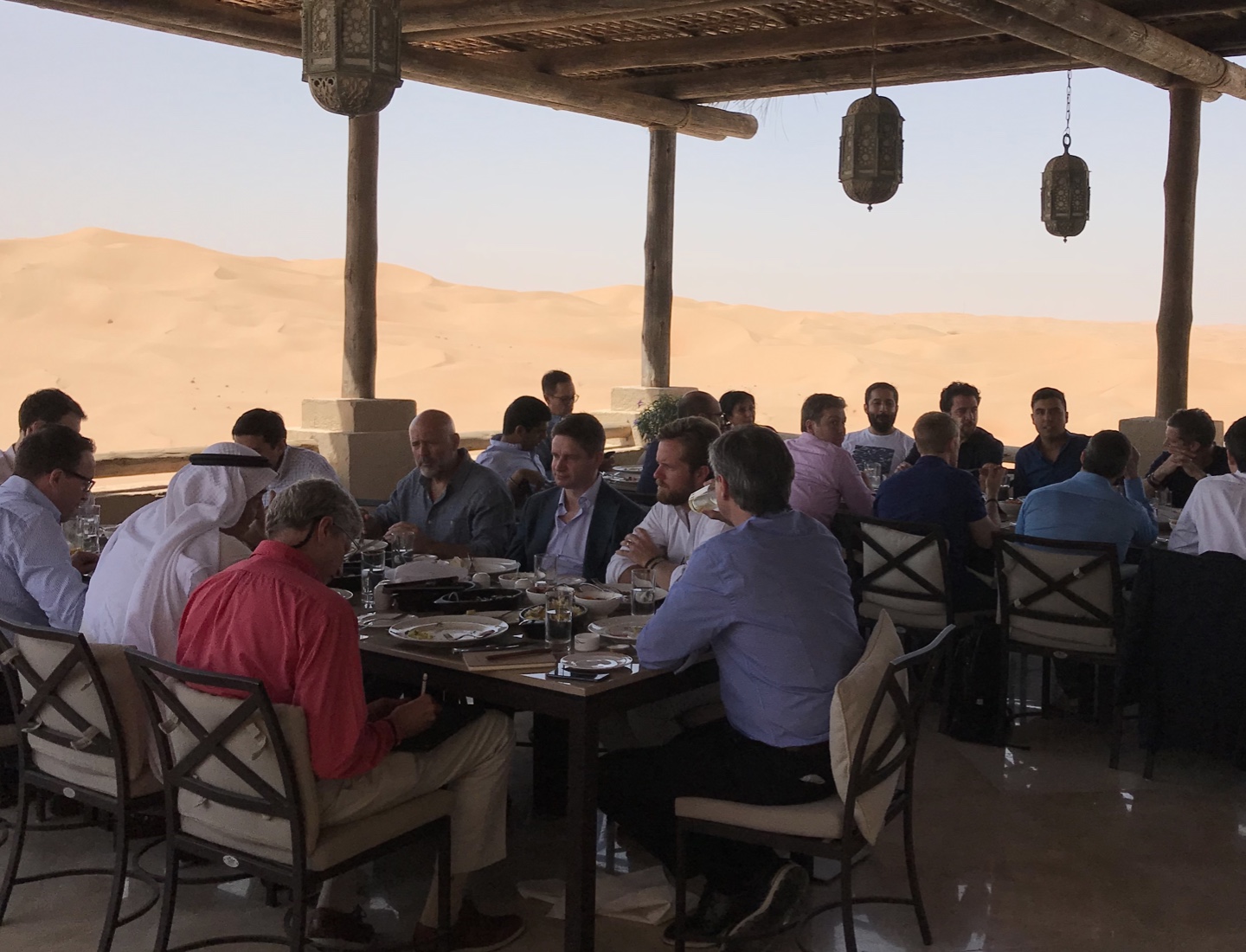A few simple realizations have changed the way I operate my life.
First, I don’t know everything. (This took a shockingly long time to admit).
Second, I won’t know everything. (Feeling exasperated seeing my pile of unread books).
Third, thankfully, realizing I don’t need to know everything. (The older Jawad didn’t believe that). It’s okay to say, “I don’t know.” I don’t need to form my own opinions and judgement on everything.
Fourth, there are people out there way smarter than me. (This is what made me lean on building a community).
Fifth, I can trust their experience and expertise. (I don’t need to do the work myself). I’m happy to surrender to their view.
I find all this very liberating.
When it comes to bitcoin, I was a skeptic. What changed for me was getting to know Wences Casares. He’s one of the smartest people I’ve ever met. So, when he says something, I listen. I don’t need to use my own intellect.
I’m happy to surrender to Wences when it comes to bitcoin—just like I’m happy to surrender to Iqbal, Rumi, Emerson, my grandfather and many others in different areas of my life.
This month, Wences joined us to share his wisdom about bitcoin. Here’s a pared-down version of our salon discussion.
Where’s the Revolution?
A little over 100 million people own Bitcoin at this point, which sounds like a big number. But any mediocre mobile game has more than 100 million monthly active users. That’s nothing in the digital reality. It’s less than 2 percent of the global population. So, Wences says it's likely earlier than we think and there’s more risk than we think.
If Bitcoin succeeds, we won’t know for at least 10 or 20 years. Remember how hard it was hard to judge the internet in 1994. We take it for granted that it succeeded, but that wasn’t a foregone conclusion.
“For people who have dedicated their lives to help bitcoin succeed like myself,” Wences reflects, “it’s time to refuel and store energy for the long journey ahead.”
Why Bitcoin Matters
There are only two things that matter about Bitcoin. First, that there will never be more than 21 million bitcoins. And that’s not an opinion, that’s a mathematical fact. We can trust it. And second, that it’s permissionless or uncensorable. No one can stop the system.
Governments can make it illegal to purchase bitcoin, but you cannot stop the system. It keeps accepting and processing transactions. If there was a transaction in the blockchain that all the G20 presidents or Fortune 500 CEOs wanted to delete—they can’t. Period. That is remarkable, and people don’t fully grasp it. “It’s an incredible truth hiding in plain sight.”
Electricity = Trust
According to Wences, the key to why we can trust those two things—there will never be more than 21 million bitcoins and that the system is uncensorable—is the processing power that supports bitcoin.
That’s how many computers are mining bitcoin. Right now, they’re consuming a bit more electricity than the largest dam in the world (the Three Gorges Dam in China), which is enormous.
Contrary to popular laments about bitcoin’s high energy usage, Wences believes that this is what actually makes the system robust. The most important metric he focuses on is the percentage of all the crypto electricity in securing blockchains going to bitcoin. It’s over 95 percent. The absolute number has to be big (so no one can overwhelm the system to change the blockchain and stop transactions).
“The reason we can really trust the bitcoin blockchain is because whoever wants to take it over needs a lot of hardware plus access to the equivalent of the Three Gorges Dam for a few days or weeks, which is getting harder and harder, even for nation states.” In other words, how much we can trust the system has precisely to do with how much electricity it consumes.
Often people claim that 35 percent of the bitcoin mining happens in China. That’s false. A small miner becomes part of a pool to smooth out earnings and some of the largest pools are Chinese companies. But that doesn’t mean that the mining power in the pool is Chinese. And those miners switch pools very quickly when one pool becomes too powerful.
Bitcoin mining is much more fragmented and distributed than widely perceived. No country has more than 20 percent of the mining capacity. Think of Bitcoin as an invisible grid or an invisible pipeline to help monetize electricity that before wasn’t monetized.
Bitcoin’s market cap is a “vanity metric” and price rallies are a “double edged sword”
Strong uptrends are a great moment because knowledge about bitcoin spreads and there is more user adoption. It’s very helpful. But it’s also what makes bitcoin vulnerable. It encourages people to speculate. If that sparks a bubble and then a chaotic unwind, the public can lose trust in bitcoin as a store of value. That’s always a risk.
As of now, Wences says that it is hard to find people putting money in bitcoin that they cannot afford to lose. There’s almost no leverage in the system. And the only reason why people are not overexposing themselves to bitcoin is because of the volatility. He expects it to remain super volatile and sees that as a good thing.
“How do you succeed but make everybody believe that you’re failing?” Wences asks. Bitcoin has gone from nine cents to over $50,000, but the narrative on most days is that bitcoin is crashing. That’s because the price rockets higher in short bursts while trending sideways or lower 90 percent of the time. But bitcoin is not crashing when it’s the best performing asset in twelve years and now worth a trillion dollars.
Wences sees the current rally associated with the third cut in supply. He expects it to get out of hand, rise well beyond $100,000, then collapse again by 80 percent. And then a few years of trading sideways when our reference points change to $40,000 being the normal value. “I think we have a couple of those in the future before we get to something that can be more stable.”
The Crazy Ones
Bitcoin is the best form of money we’ve ever seen, says Wences, but he doesn’t think it is ever going to replace any national currency. That wouldn’t be in the interest of any country. He imagines bitcoin becoming a “meta currency” which is used as a world standard of value and settlement.
“But talking about that is crazy. It’s as crazy as saying in 1994, that sometime in the future, we will be doing high-definition video conferencing for free from Toronto to Palo Alto with people from all over the world. Yes, it’s crazy, but it happened.”







